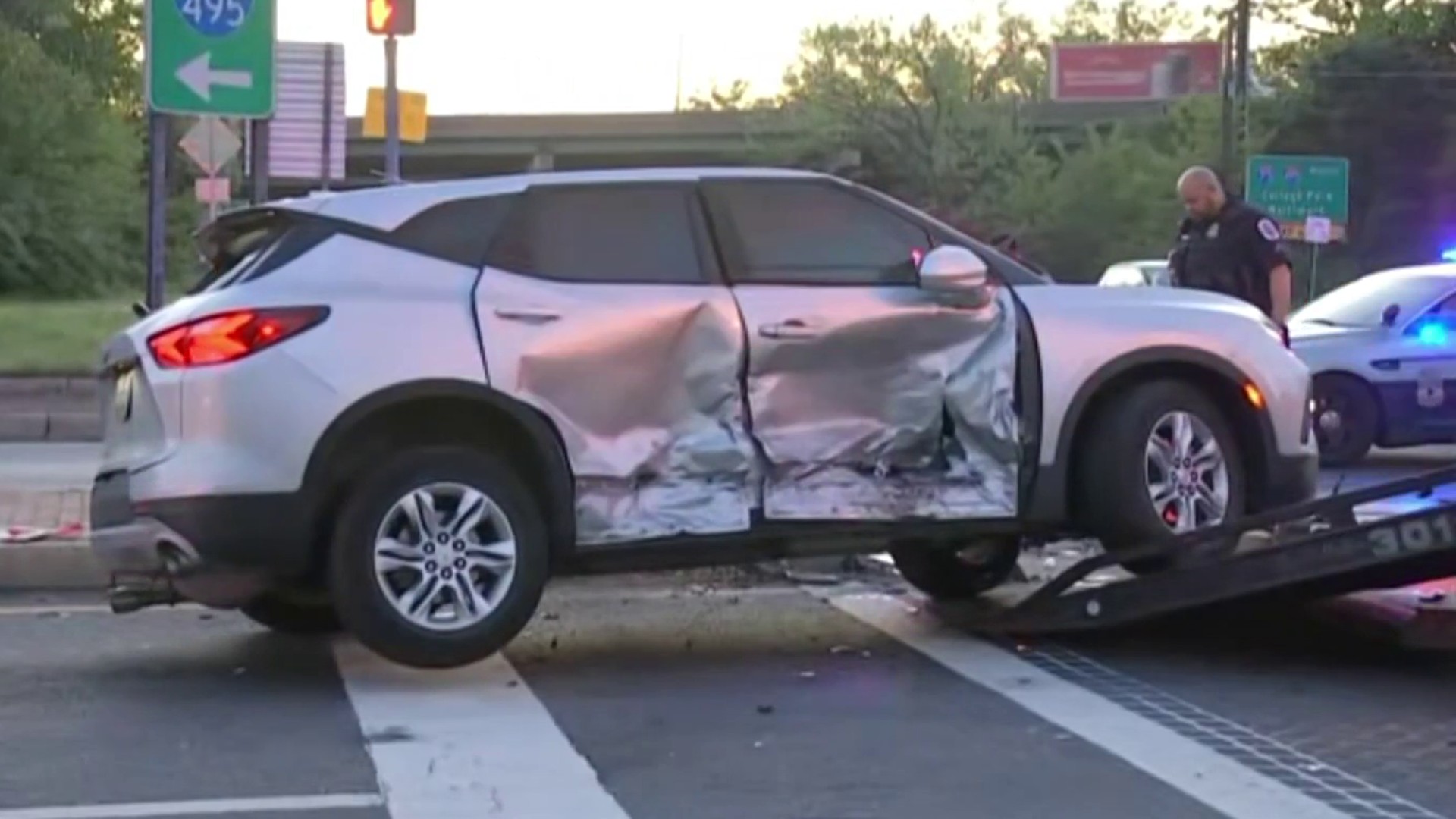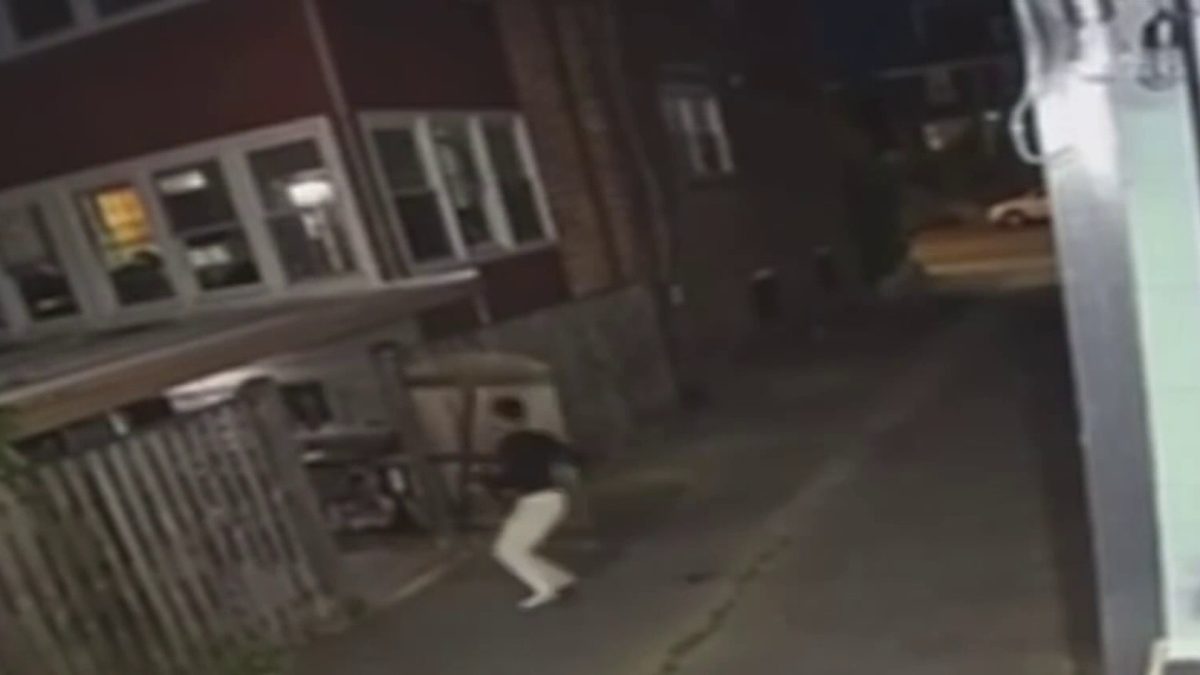What to Know
- DC Police Chief Cathy Lanier said our criminal justice system is "beyond broken." I agree.
Harry Jaffe, a longtime chronicler of the people and politics of Washington, D.C., writes an occasional column for NBC Washington's First Read DMV blog.
Cathy Lanier tossed a bitter bouquet last week on her last days as D.C. police chief when she said our criminal justice system is "beyond broken." I agree. Take the case of Romeo Hayes.
It began on the night of Aug. 13, 2014. D.C. Detective Thurman Stallings couldn't sleep. A murder case on his desk beckoned. He woke his wife up about 2 a.m. and said he was heading into homicide headquarters. "Back by noon," he said. She wasn't surprised. He had 25 years on as a cop, loved his job and dedicated himself to getting killers off the street.
Behind the wheel of his green SUV, Stallings was stopped at a light near Alabama Avenue SE, when a small car pulled up to his left. The window dropped down; he saw the barrel of a Glock-17. Figuring he was being carjacked, he told the shooter: "Not tonight." Then he ducked.
The first bullet hit him in the arm. The car sped off. He gave chase.
Stallings cut the car off a few blocks away. When the car teed into his door, he saw the Glock come out of the passenger window and the flash of the muzzle. Bullets pierced his windshield. Three hit him in the chest. The car backed away and sped off again. Stallings saw police cars in his rear view mirror and managed to pull off into a side street.
Local
Washington, D.C., Maryland and Virginia local news, events and information
A chopper airlifted him to Washington Hospital Center.
Romeo Hayes, then 28, had left the Opera Ultra Lounge at 14th and I streets NW with evil intent. Riding shotgun in a stolen car, he first squeezed off a few shots at a sedan, also driven by an off-duty cop, before turning his pistol on Stallings. Later that morning police arrested Hayes in Prince George's County when he tried to ditch the car. Prosecutors charged him with eight felonies, including assault with intent to kill and possession of a firearm during a crime of violence.
You would expect judges to put Hayes away for a long, long time. Not quite. In March prosecutors allowed Hayes to take an Alford plea -- in which he acknowledged they had enough to convict him, but he was allowed to deny the allegations. The deal gave him a sentence of 10 years. So in 2026, a repeat offender with a penchant for randomly shooting at people could be back on the street.
I have had my differences with Chief Lanier, most recently on her dismantling of D.C.'s vice squads. But she's spot on with her thrashing of the criminal justice system. Apologists might blame violent crime on schools that fail to educate, lack of jobs, troubled families and more. All true, but they are missing the point. We know that a few career criminals are terrorizing our streets. We know gun crimes are on the rise in and around D.C. The criminal justice system fails to keep us safe.
Take Romeo Hayes. He has a rap sheet going back to his first arrest for armed car jacking in 2004. He's been arrested and charged in 14 cases in Prince George's County, many for possession of weapons. When he shot Stallings, a search warrant was out for failing to show up in court.
When I dug through case files, I found that prosecutors and judges kept letting Hayes slide. Lawyers stood by as he failed to show up in court. Judges never jailed him. In Prince George's County and the District, Romeo Hayes got the "okeedoke" from the law, so he kept racking up the gun crimes.
Lanier is correct when she fingers prosecutors and judges. She told the Washington Post that people want more police and more arrests, "but if we're arresting the same people over and over again, there's got to be some questions being asked."
Responding to her criticism, Chief Superior Court Judge Lee Satterfield told reporters at a press conference he "disagreed" but refused to elaborate. U.S. Attorney Channing Phillips defended the system.
D.C. Mayor Muriel Bowser cut close to the bone when she pointed out that both prosecutors and judges are part of the federal government, as opposed to locally controlled systems in most major cities. "The prosecutors don't report to the people -- they don't report to me either. Judges and others don't."
When NBC4 reporter Mark Segraves asked if prosecutors and local judges should be elected, Bowser said, "I would rather have our criminal justice system accountable to the people who pay the taxes here and are affected by crime here."
That's not going to happen, so what can be done to fix the system and protect us from predators?
First, pressure D.C. councilmembers to pass tough laws to punish career criminals and stiffen jail time for gun crimes. As it is, too many councilmembers are weak-kneed and prone to blame society for bad behavior. That's especially true of at-large member David Grosso and Judiciary Chair Kenyan McDuffie. Nonsense. Treat drug offenders, but jail violent offenders.
Stop prosecutors from offering up plea deals to violent criminals like Romeo Hayes.
Monitor judges. I have sat in Superior Court time after time and watched judges give light sentences to people who used guns to rob or settle scores. They should serve hard time.
This is not about race. Violent men or women, regardless of skin color or class, must be taken off the streets.
By the way, Detective Thurmond Stallings is back on the streets. Doctors sent him home without removing the bullets. He's healed. He's on the homicide squad trying to arrest killers in our midst.
At least that part of the system is working.



